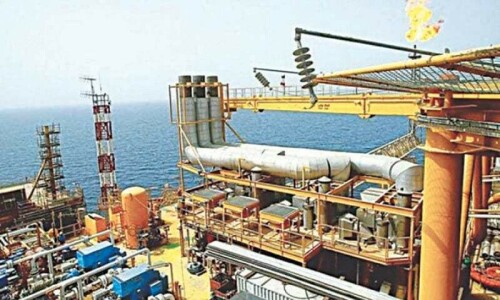ON her 16th birthday, Malala Yousufzai made her country proud once again. The composure, poise and maturity of Malala on display at the United Nations were truly a sight to behold. Leave aside her age, the fact that she had been shot in the head less than a year ago infused the moment with a great deal of poignancy. As ever, though, Malala sought to move the subject away from herself. “Malala Day is not my day. Today is the day of every woman, every boy and every girl who have raised their voice for their rights,” the young activist said. Malala is truly the pride of Pakistan. And yet, even as perhaps the sole beacon of hope in this country where hope and inspiration are all too difficult to find, Malala’s speech, and her mission, will perhaps not gain the kind of attention and sustained coverage it deserves.
The reason why Malala has not reached the iconic status inside Pakistan that she deserves is dis-piritingly familiar: at age 16, Malala has the kind of clarity and sense of purpose that a divided Pakistani society simply does not. And therein lies the central challenge to putting Pakistan on the road to a stable and secure future. How exactly and who exactly will provide the leadership to drag society from its state of confusion towards coalescing against some clear and coherent principles? In particular, how will Pakistan inch towards a zero-tolerance policy towards non-state actors, the very forces that tried to kill Malala and have killed many thousands of Pakistanis over the years?
The answer to those questions is much murkier. The obvious candidates are the political leadership and the army high command. But it is difficult to know if they can ever truly be brought on the same page given the long and treacherous history of institutional tensions in Pakistan. Unhappily, while the urge is to suggest that they must somehow provide the leadership the country deserves, there is little historical evidence, nationally or even internationally, to suggest that will necessarily be the case. In the absence of that clarity, however, Pakistan’s drift towards extremism, militancy and terrorism and a declining state seems to be a near certainty. The only unknown there is the timeline: will it happen sooner than later or will a slow-motion downward spiral play out? The trend, though, can be checked and reversed even. Whether cataclysmic events act as the trigger or statesmanship prevails before that, the slide towards chaos is only inevitable if Pakistan and Pakistanis let it become so.








































